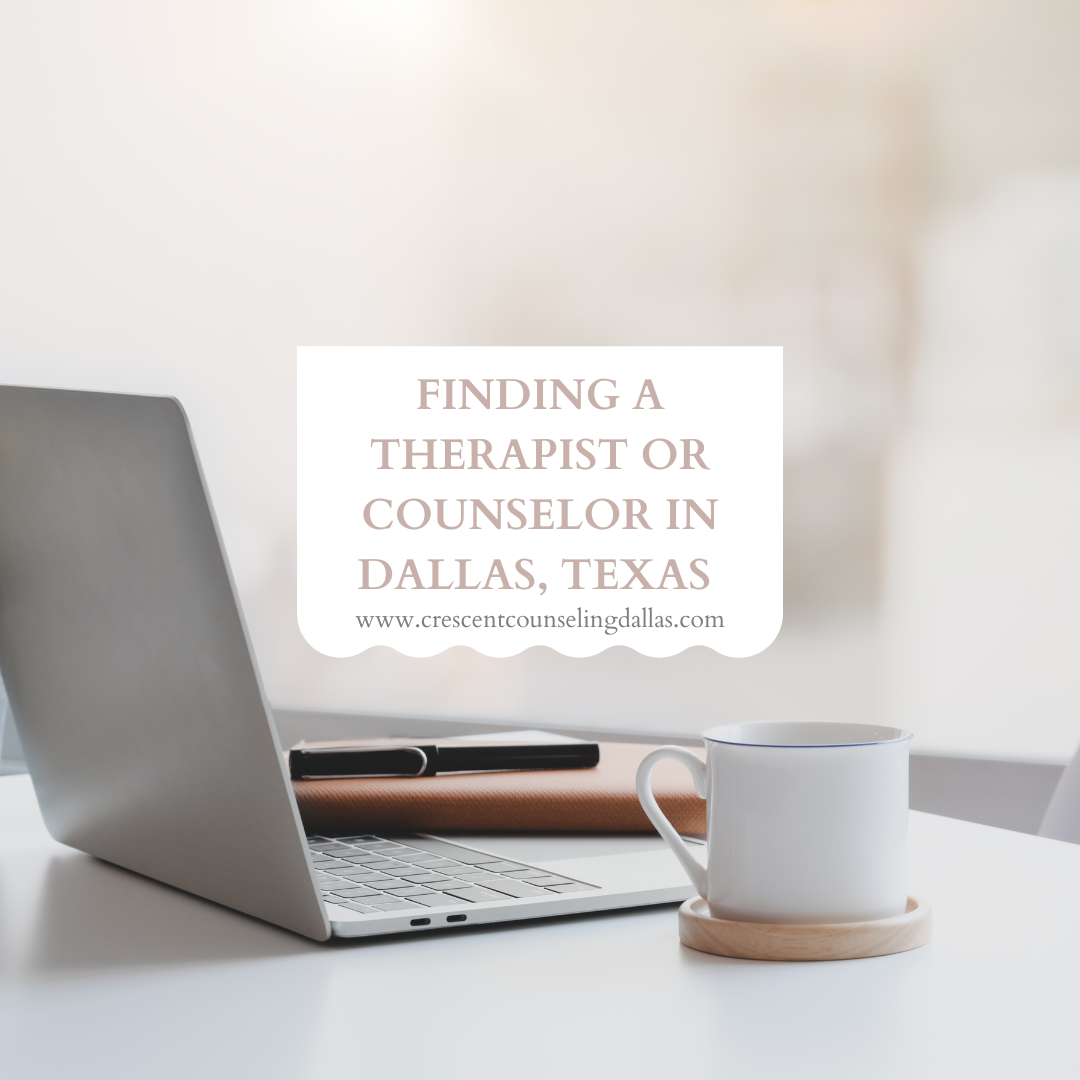Finding a therapist or counselor in Dallas, Texas
While living in an area as large as the Dallas-Ft. Worth metroplex can have so many benefits, we know it can also feel overwhelming and even lonely at times. There are so many blogs and social media accounts dedicated to helping you pick which new restaurant to try, but you may not know where to start when looking for someone to talk to. We want to help you find a counselor or therapist who can help.
We’re here to help you find a counselor or therapist in Dallas
Tip #1: Start getting familiar with what you might be looking for.
Language around helping professions may be confusing. If you want exploring medication to be a starting place, you’re likely looking for a psychiatrist. Psychiatrists and psychologists may be what you’re looking to have formal assessment or evaluation completed for something such as ADHD testing or needs related to any legal involvement. Therapist and counselor can be used interchangeably and will lead you to help with emotional, mental health, and behavioral needs. Try searching for what you think you most need help with followed by the phrase “therapist in Dallas” (or Texas if you’re open to online therapy). For example, you may search for “anxiety therapy in Dallas” or “couples counseling in Dallas.” You may also come across life coaches. What separates life coaches from therapists and counselors is life coaches do not hold licenses and have no regulating board. This means there are no standardized educational requirements for life coaches.
Tip #2: Write out a list of questions to ask.
Talking to someone new can be anxiety provoking, and sometimes you might forget things once that anxiety shows up. Have a list of questions written out to refer to on a phone consultation. Think about what’s important for you to know to start your therapy journey. This list might include questions around insurance and fees, the therapist’s availability for scheduling, and what you can expect in a typical session. It’s definitely okay to ask if the therapist thinks they can help with whatever is leading you to seek help or if they know of someone who may be a better fit.
Tip #3: Know that it’s okay if it’s not a good fit.
Each therapist may not be a fit for you, so know that it’s okay to say “no” to scheduling with someone or to having a second session. It won’t hurt our feelings! As helpers, we want you to land where you feel safe and connected enough to start your healing journey. If that isn’t the person you’re talking to, give them your thoughts and let them see if they know of someone who may be a better fit. Talking to someone may give you more direction than an internet search. It serves the mental health community as a whole to help clients and clinicians that are a good fit find one another.
Tip #4: There’s no wrong starting place!
Too many choices can feel overwhelming and often lead to procrastination. In a city like Dallas, we know there are so many options of therapists. Try to view starting the process of finding a therapist with curiosity and as information gathering. Starting with filling out a contact page or making a phone call to any therapist near you will likely give you more information in your decision-making process. There is no “right” or “wrong” therapist or group practice to start with and no perfect way to approach the process. Any first step takes courage and is a step towards you showing up for yourself!

